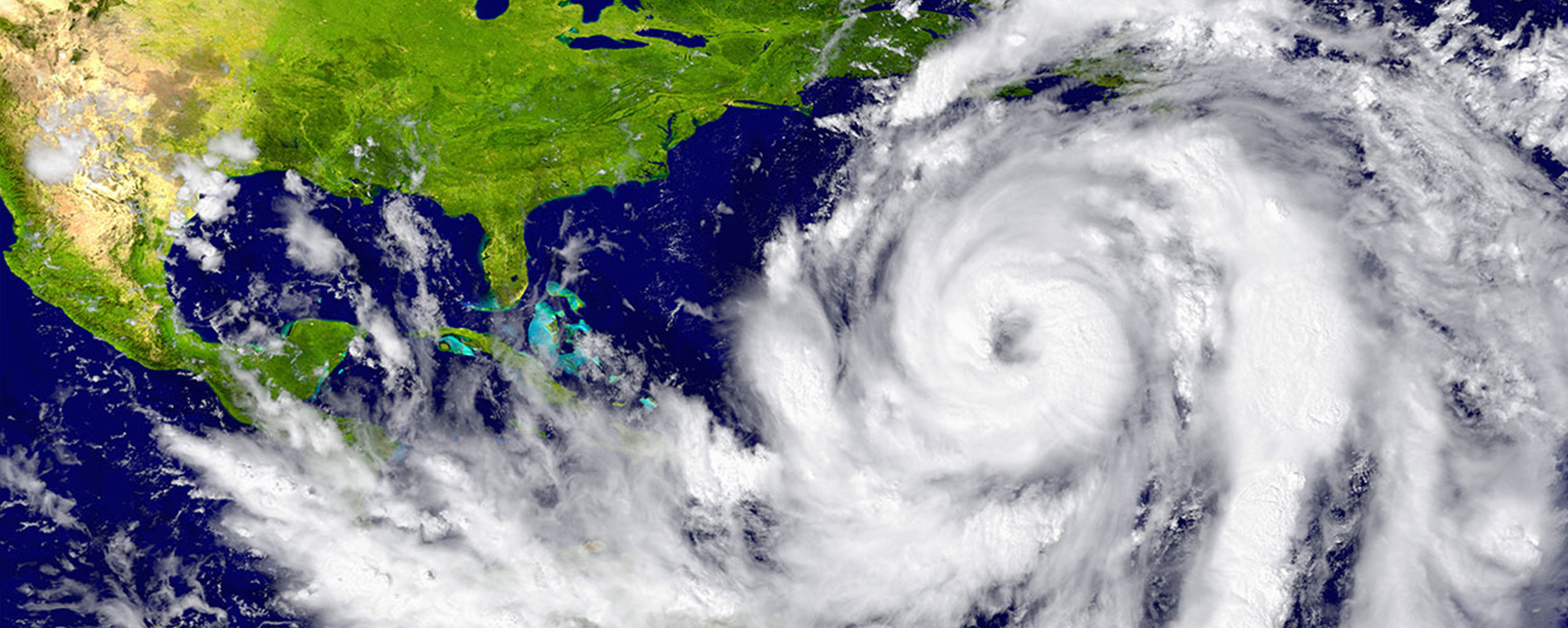This digital toolkit contains a library of ready-to-use social media posts, graphics and video links that promote life-saving information about how individuals and families can prepare for and survive during a hurricane.
What you should know about Hurricanes
- Know what to do before, during, and after a hurricane (Español)
- Prepare before hurricane season starts. Pacific hurricane season starts May 15 and Atlantic hurricane season starts June 1.
- Create an emergency communication plan with your family before a hurricane.
- Have emergency supplies in place at home, at work and in the car.
- Check your insurance coverage, damages caused by flooding are not covered under normal homeowner’s insurance policies.
- Know your community’s evacuation plan , possible evacuation routes and how to sign up for local alerts.
Always follow the instructions from local officials. Evacuate if told to do so.
Graphics, Videos & Related Links
For more engaging content, attach graphics to social media posts. Below are collections of severe weather-related content that you can share with the below text.
- Hurricane Preparedness Graphics
- National Weather Service Hurricane Preparedness Week
- “Storm Surge Kills” public service announcements
- National Hurricane Center
- Learn what to do before, during, and after a hurricane by visiting: ready.gov/hurricanes & listo.gov/huracanes
- FEMA Accessible: Hurricane Basic Preparedness Tips
- Get the kids involved in preparing with Ready Kids
- Get tips and tools for emergency preparedness for people with disabilities.
- Download the FEMA app for disaster resources, weather alerts, and safety tips
- Check your insurance coverage by visiting: www.floodsmart.gov
- FEMA Accessibility YouTube Library
Social Media
Hashtags
- #HurricanePrep
- #HurricaneStrong
Know Your Hurricane Risk
- Live on the coast? You are most at risk for extreme winds & flooding from rain & storm surge during a hurricane. #HurricanePrep
- Live inland? You are at risk for wind, thunderstorms, flooding, & power outages during a hurricane. #HurricanePrep
- Hurricanes not only result in high winds, but floods, too. If you see a flooded path: Turn Around, Don’t Drown! #HurricanePrep
- Hurricane watch = conditions possible w/in the next 48 hrs. Learn how to prepare: ready.gov/hurricanes #HurricanePrep
- Hurricane warning = conditions are expected within 36 hrs. Learn how to prepare: ready.gov/hurricanes #HurricanePrep
- Know the risk: learn about alerts & warnings and what action you need to take if you receive one: www.ready.gov/alerts #HurricanePrep
- 2 factors of your personal hurricane risk are where you live & your home structure. Learn more: https://www.ready.gov/sites/default/files/2020-03/fema_how-to-prepare-for-hurricane.pdf #HurricanePrep
Know Your Evacuation Zone
- You may have to evacuate quickly due to a hurricane. Learn your evacuation routes & identify where you will stay www.ready.gov/evacuation #HurricanePrep
- Search online today for local pet-friendly evacuation locations. #HurricanePrep
- Do not get caught by dangerous flood waters, have an evacuation plan. https://www.ready.gov/evacuation #HurricanePrep
- Hurricanes can cause extensive flood damage in coastal & inland areas- Make a #HurricanePrep plan: ready.gov/hurricanes
- Keep your car’s gas tank at least half full in case you need to quickly evacuate for a #Hurricane #HurricanePrep
- Know your community’s local #hurricane evacuation plan and identify several evacuation routes for your location. #HurricanePrep
- Know before you go: Don’t go off course – follow official local #hurricane evacuation routes #HurricanePrep
- It is time to go. If you have been instructed to evacuate, please do so. Listen to local officials to save yourself and your family. #HurricanePrep
- A safe place during a hurricane is just a text away. Text “shelter” and your 5-digit ZIP code to 43362 to receive a list of nearby shelters within 200 miles of your ZIP code.
- If you rely on public transportation, contact your local emergency management agency about evacuation procedures before a hurricane. #HurricanePrep
- Driving through flooded roadways is dangerous. Check out this @NWS PSA to see why: https://www.youtube.com/watch?v=5JUsYrjg6xU #HurricanePrep
Assemble Disaster Supplies
- Build emergency supplies by grabbing extra at the store *before* an emergency. #HurricanePrep
- As part of your family’s emergency kit, include games & toys to keep children entertained. #HurricanePrep
- Include a hand-crank or battery powered radio in your emergency kit. More tips: ready.gov/kit #HurricanePrep
- During an extended power outage, ATMs & credit card machines may not work. Include extra cash $$ in your emergency kit. #HurricanePrep
- Store supplies at the places you frequent most like work and home in case you need to shelter in place during a hurricane. #HurricanePrep
- Do you have enough batteries? Find out what supplies you should have on hand: ready.gov/kit #HurricanePrep
- Gather your #hurricane supplies now, so you will be prepared and not be tempted to drive on possibly flooded roads. A basic supply list can be found here: ready.gov/kit. #HurricanePrep
- Keep emergency supplies in your car in case you need to evacuate due to a hurricane. #HurricanePrep
- Charge and keep back-up batteries in your emergency kit for devices that help you communicate and stay mobile. This is especially important for people with disabilities who use these devices.#HurricanePrep
Prepare Financially
- Part of being prepared is understanding your finances. Does your family have enough savings in case of an emergency? Get more info: www.ready.gov/financial-preparedness #FinancialPrep #HurricanePrep
- Anticipate initial out-of-pocket expenses for lodging, food, gas, and more after a disaster. Are you prepared? #FinancialPrep #HurricanePrep
- Floods are the nation’s most common and costly natural disaster, causing billions of dollars in damage each year. How are you prepared in case of a disaster? Plan now. Get tips: www.ready.gov/financial-preparedness #HurricanePrep
- The Emergency Financial First Aid Kit is a tool to help individuals and families at all income levels collect and secure the documentation they would need in case disaster strikes: www.ready.gov/financial-preparedness #FinancialPrep #HurrricanePrep
- Businesses: purchase business-interruption insurance policies to help cover and protect against lost earnings that can occur following a disaster. #FinancialPrep #HurricanePrep
- If you want to build up your savings, try putting a small amount in your account the first of every month. #FinancialPrep #HurricanePrep
- Save. Save. Save. Your emergency savings can help you get life-saving items like food, shelter, and water in an emergency. Saving Tips: www.ready.gov/financial-preparedness #HurricanePrep
Check your insurance coverage
- Snap photos of important documents & save in a secure place to access during an emergency. #HurricanePrep
- Hurricanes bring heavy rains that may cause flooding. Purchase flood insurance before the storm. https://www.fema.gov/national-flood-insurance-program #HurricanePrep
- Are you covered for hurricane dangers such as high winds & damage? Check your insurance policy ASAP. https://www.fema.gov/national-flood-insurance-program #HurricanePrep
- 30: The number of days it takes for flood insurance to begin. Don’t wait until it’s too late! https://www.fema.gov/national-flood-insurance-program #HurricanePrep
- Find out if you live in a flood prone area and how flood insurance can lessen the financial impact of a flood by visiting: www.floodsmart.gov. #HurricanePrep
- Owning a coastal home isn’t always a vacation, because it comes with a serious risk of flooding. Study up on flood insurance and find ways to protect your home @ www.floodsmart.gov #HurricanePrep
Strengthen your home
- #HurricanePrep tip: Bring in outdoor furniture & anything else that is not tied down to prevent injury/damage from debris.
- #HurricanePrep tip: Trim trees & shrubs. High winds can turn branches into projectiles during a storm.
- Reduce property damage in the event of a hurricane by retrofitting (i.e., reinforcing) the roof, windows, and doors. #HurricanePrep
- You can act now to reduce potential property damage caused by floodwaters. Use flood damage resistant materials. # HurricanePrep
- When constructing a new home or upgrading an existing home, consider elevating the structure to better protect against floodwaters and/or storm surge. #HurricanePrep
Check on Your Neighbors
- Check in with neighbors to see how you can help each other out before and after a storm #HurricanePrep
- If you run to the store to grab a couple last minute supplies before a storm, check to see if your neighbor needs anything. #HurricanePrep
- Please share tips with your community for staying safe before, during, & after a hurricane: www.ready.gov/hurricane #HurricanePrep
- Get to know your neighbors before a storm or an emergency to help out in your community #HurricanePrep
- Almost half of Americans expect to rely on their neighbors after a disaster. Do you know yours? #HurricanePrep
- Help your community/neighbors get prepared & trained for an emergency by visiting: https://www.ready.gov/get-involved #HurricanePrep
Make an Emergency Plan
- Where will your loved ones be during a hurricane? Make and test your communication plan today. Get all the resources you need: www.ready.gov/plan #HurricanePrep
- Your family’s needs change over time – make sure you have what you need for this year’s #hurricane season www.ready.gov/kit #HurricanePrep
- Pick an out of town person for everyone to contact during an emergency. #HurricanePrep
- Disasters don’t plan ahead. You can. Make an emergency plan today. www.ready.gov/plan #PlanAhead #HurricanePrep
- Preparing the family for an emergency is as simple as a convo over dinner. Get started with tips from www.ready.gov #HurricanePrep
- Download a group texting app so your entire crew can keep in touch before, during & after an emergency. #HurricanePrep
- Don't forget to include your pets and service or support animals in your family's emergency plans. #HurricanePrep
- Download, share or print @Readygov’s Pet owner’s planning guide: https://www.ready.gov/sites/default/files/2020-03/prepare-for-emergencies-pet-owners.pdf #HurricanePrep
- Don't forget to make a plan for large animals & livestock before a disaster. Tips: www.ready.gov/animals #HurricanePrep


